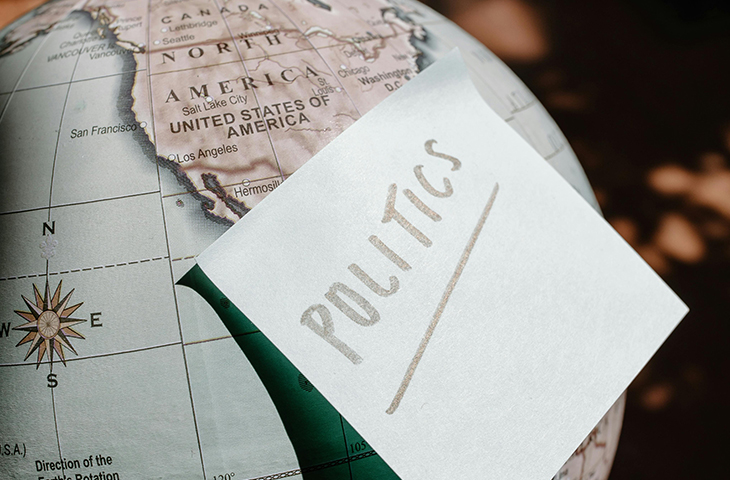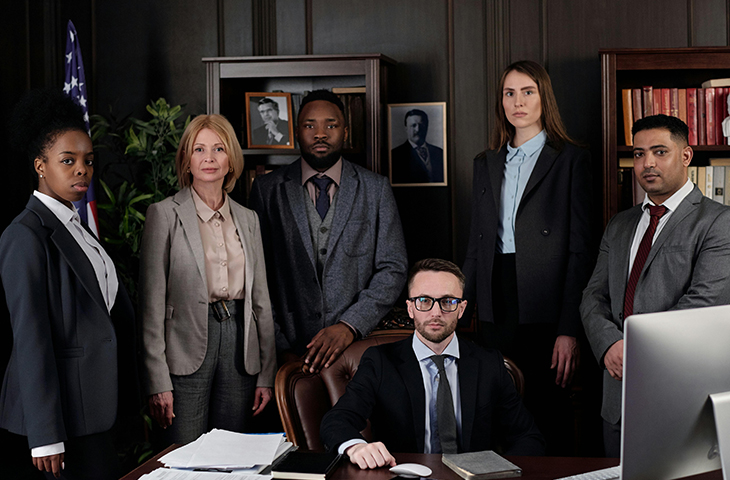E. Jean Carroll Lawyer Takes Another Swing At Trump, This Time Over Nyc Tolls

New York’s fight to save a Manhattan toll plan sets up a court battle between the Trump administration and one of the president’s major legal foes, Roberta Kaplan.
Perhaps no attorney bedeviled President Donald Trump in his many legal cases more than Kaplan, who was previously best known for winning the Supreme Court case forcing the federal government to recognize same-sex marriage.
Kaplan represents E. Jean Carroll, who won multimillion-dollar civil judgments from a pair of juries after they found him liable for sexually abusing and defaming her. Trump continues to assert his innocence and contest the awards.
Kaplan is also counsel for the New York Metropolitan Transportation Authority in its bid to save congestion pricing from Trump’s attempt to kill it. The MTA hired Kaplan long before Trump was reelected and she helped the transit agency beat back a series of legal challenges to the tolls even before they took effect in January.
New York Gov. Kathy Hochul, a Democrat, has framed the legal fight with Trump in Revolutionary War terms and compared the president to King George III trying to impose his will on the American colonies.
Trump seemed to claim victory right away, posting on X an image of himself grinning and wearing a crown in front of the New York City skyline. But Kaplan is a tough adversary whom one supporter called a “generational powerhouse.” And she’s already beat Trump twice before.
The 51-page MTA lawsuit was filed Wednesday by Kaplan’s firm, Kaplan Martin, and the environmental law firm of Sive Paget & Riesel shortly after Transportation Secretary Sean Duffy sent a letter aimed at revoking the key federal approval for the tolling program, which has been decades in the making.
The White House and DOT did not respond to a request for comment, but on Wednesday Trump said “congestion pricing is not a good situation, they’re treating the people of New York very badly.”
The sheer length of the brief shows the MTA had much of it ready to file. It has touches of legal tactics that became a hallmark of Kaplan’s battles with Trump in the Carroll cases, like throwing Trump’s own words back at him.
The cases are very different, though, in large part because the Carroll lawsuits took aim at Trump as an individual, and concerned his personal conduct.
Kaplan’s success in those cases stemmed significantly from her ability to elicit damning and unflattering admissions from Trump during a videotaped deposition that was played for jurors in both trials.
During the deposition, Trump grew agitated, at times crossing his arms over his chest while Kaplan questioned him. When she asked about several other women who have accused him of sexual assault, women Trump has characterized as not being his “type,” Trump told Kaplan herself that “you wouldn’t be a choice of mine, either, to be honest.”
He added: “I wouldn’t in any circumstances have any interest in you.”
Kaplan also deployed Trump’s remarks against him in real time, a tactic the MTA is already adopting.
During the second Carroll trial, for example, Kaplan and Carroll’s other lawyers showed the jury social media messages Trump posted about Carroll while the trial took place, as well as clips from a press conference he held midway through the proceedings in which he referred to her “made-up story.”
The MTA’s lawsuit quotes Trump’s first inaugural address — “we are transferring power from Washington, D.C., and giving it back to you, the American people” — to argue that the administration shouldn’t be encroaching on state decisions, like establishing the tolls.
It also frames tolls as a “market-based, user-pay solution.”
The user-pay language is straight out of a recent Trump administration memo that would redo how the federal government funds transportation projects. That memo, in turn, echoed similar language from a conservative blueprint released by The Heritage Foundation’s Project 2025, which suggested more “user fees.”
There are still substantial differences in the cases.
The Carroll cases were factual disputes, so they were decided by juries, and Kaplan won by presenting a compelling narrative about a very sympathetic plaintiff.
The MTA case is purely a question of law, so it likely will be resolved by a judge at the summary judgment stage. Kaplan's skill as a polished trial lawyer in front of a jury won't be relevant here.
But there are chances that it will be heard by a judge who has, so far, been sympathetic to congestion pricing.
Kaplan suggested in a separate Wednesday legal filing that the MTA lawsuit should be heard by U.S. District Court Judge Lewis Liman, who has already upheld congestion pricing in other contexts.
Liman is already dealing with several cases aimed at blocking congestion pricing. So far, Liman has soundly rejected those challenges and sided with the MTA.
In the minutes after the Trump administration moved to block congestion pricing, attorneys for the MTA flew into action and filed the suit.
Kaplan has been representing the MTA since 2023, when the transit agency brought her aboard to defend it against obstacles having nothing to do with Trump, including New Jersey Democratic Gov. Phil Murphy’s attempts to block the tolls in federal court. Murphy had hired another well-known New York attorney, Randy Mastro, who was a deputy mayor during Rudy Giuliani’s administration.
That case, though, was more arcane and focused on specialized corners of environmental law. During a two-day hearing in front of a federal judge in New Jersey, attorneys from Sive Paget took the lead.
Hochul has famed the new MTA lawsuit against Trump in much more dramatic terms, especially after Trump announced his plans to kill congestion pricing with a social media post that ended “LONG LIVE THE KING!”
Hochul responded with a fiery press conference in Midtown Manhattan that treated the new president as if he were King George III.
“I'm here to say, New York hasn't labored under a king in over 250 years and we sure as hell are not going to start now,” the governor said, adding “I don't care if you love congestion pricing or hate it. This is an attack on our sovereign identity, our independence from Washington.”
That kind of language invites comparisons to Kaplan’s most significant case, United States v. Windsor, in which the Supreme Court ruled the Defense of Marriage Act is unconstitutional, a major win for same-sex marriages.
That case, which advanced a cause championed by liberal groups, was rooted in a dispute over estate taxes — a conservative framing that won over Justice Anthony Kennedy in a 5-4 decision.
“Robbie Kaplan is a generational powerhouse of the legal profession, she’s won pathbreaking cases against Trump himself and the precursor to the MAGA movement, in the opposition to marriage equality,” said Danny Pearlstein, a spokesperson for the Riders Alliance, a transit advocacy group that has been working to save congestion pricing in court. “And she’s the perfect fit for the all-star litigation team alongside Sive Paget, the foremost environmental law firm in the world.”


